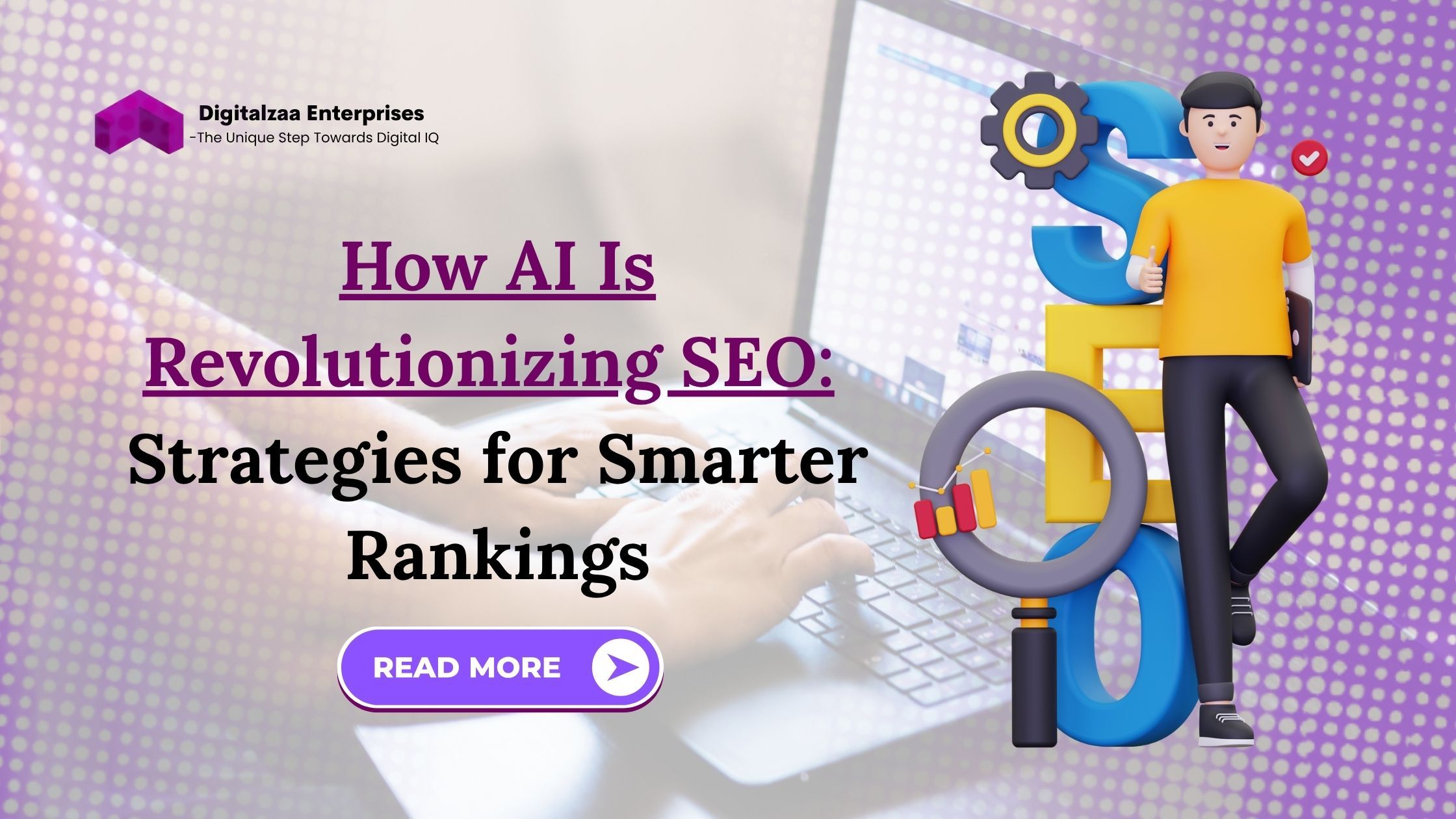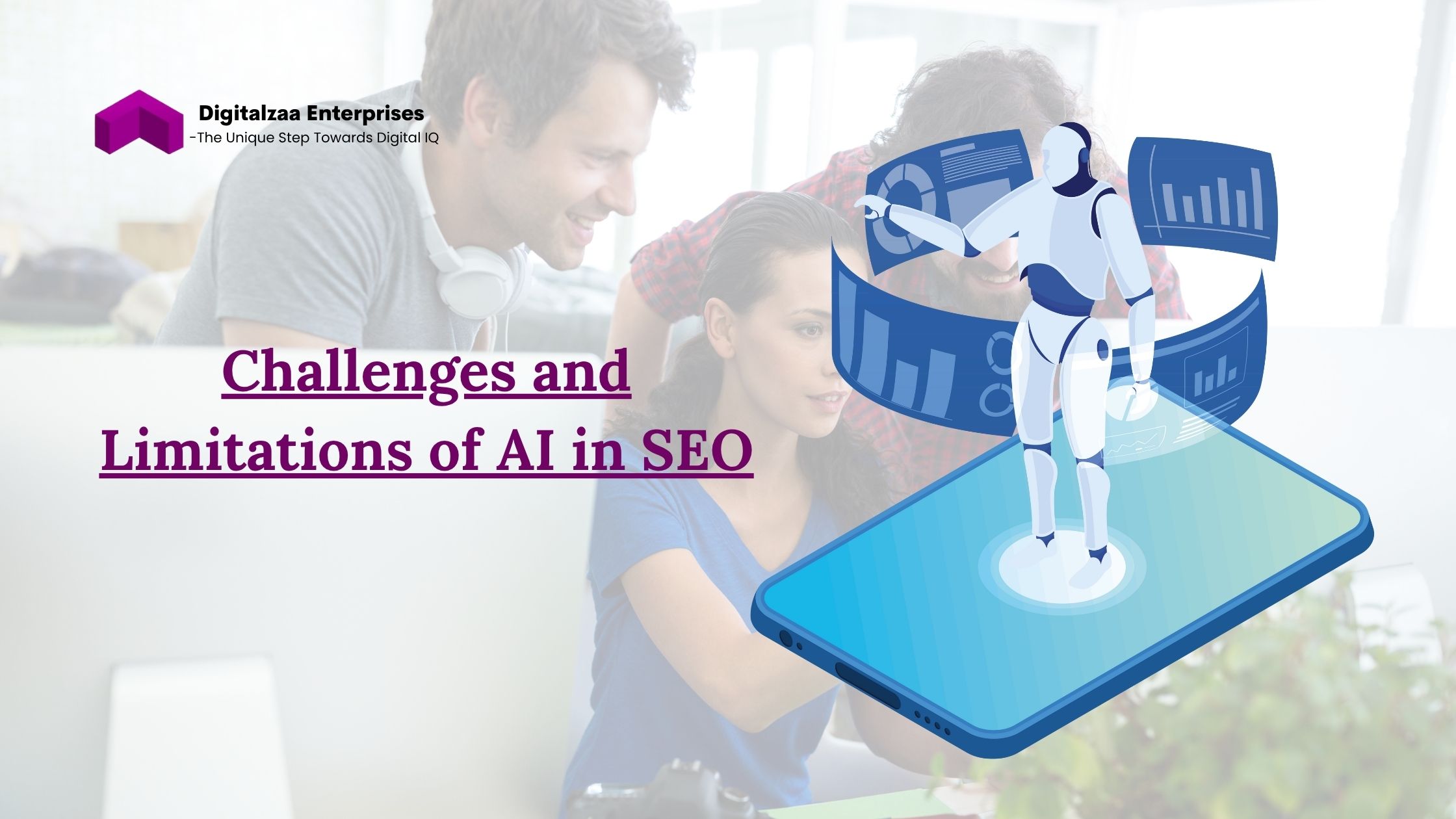How AI Is Revolutionizing SEO: Strategies for Smarter Rankings?

Search Engine Optimization (SEO) is evolving rapidly, and at the heart of this transformation is Artificial Intelligence (AI). Gone are the days when keyword stuffing and backlink spamming could land a webpage at the top of search engine results. Today, AI is redefining how websites rank, how users engage with content, and how marketers strategize. From automating keyword research to optimizing user experience, AI is making SEO smarter, faster, and more effective.
In this blog, we explore how AI is revolutionizing SEO and what strategies businesses should adopt to stay ahead in the rankings.
Understanding AI in SEO
Artificial Intelligence refers to machines' ability to simulate human intelligence processes such as learning, reasoning, and problem-solving. In SEO, AI is used to:
- Analyze large datasets
- Predict user behavior
- Automate routine tasks
- Generate insights for content optimization
- Personalize search results
Google itself uses AI heavily through its algorithms like RankBrain and BERT. RankBrain helps interpret search queries to deliver more relevant results, while BERT understands the context of words in a search string. These innovations have set a new standard for SEO, emphasizing quality, relevance, and user intent.
Key Ways AI Is Changing SEO

1. Smarter Keyword Research and Content Optimization
Traditionally, keyword research was a manual, time-consuming task. Today, AI tools like Semrush, Surfer SEO, and Clearscope can:
- Identify keyword opportunities
- Analyze competitors
- Recommend content structure
- Suggest keyword placement
AI understands semantic search and latent semantic indexing (LSI), allowing it to recommend related keywords and phrases that help content rank better. Instead of simply targeting keywords, content creators now focus on topics and user intent, thanks to AI’s deeper understanding.
2. Content Creation and Enhancement
AI writing tools like ChatGPT, Jasper AI, and Copy.ai are helping marketers create initial content drafts, headlines, meta descriptions, FAQs, and even full-length articles. While human creativity still plays a vital role, AI enhances productivity and ensures consistency across large content campaigns.
More importantly, these tools provide data-backed insights on what type of content works best for a specific keyword, down to paragraph structure and tone of voice.
3. Search Intent and Personalization
Understanding search intent (informational, navigational, transactional, or commercial) is crucial in SEO. AI analyzes user behavior, previous search history, and even location to customize search results. This makes SEO strategies more intent-focused rather than keyword-focused.
AI enables content marketers to create personalized content that caters to different audience segments, improving both rankings and conversion rates.
4. Voice Search and Conversational Queries
With the rise of voice assistants like Siri, Alexa, and Google Assistant, voice search has become a major SEO frontier. AI is critical here because it processes natural language queries, which are often longer and more conversational than text searches.
Optimizing for voice search involves using AI tools that help predict and model conversational patterns. Featured snippets, question-based content, and long-tail keywords play a key role in this strategy.
5. Technical SEO Enhancements
AI-powered tools help analyze technical SEO aspects such as:
- Website crawlability
- Page speed
- Mobile responsiveness
- Schema markup
- Internal linking
Platforms like Screaming Frog, Ahrefs, and Google Search Console leverage AI to detect issues and offer actionable recommendations. As search engines become more sophisticated, a technically sound website becomes non-negotiable for high rankings.
6. Predictive Analytics and Rank Tracking
AI excels at spotting patterns in data. With predictive analytics, AI can estimate future search trends, user behavior, and even ranking positions. This gives SEO professionals a head start in content planning and strategy formulation.
AI-powered rank tracking tools give more accurate and real-time insights into how a page performs, why rankings fluctuate, and how to react accordingly.
7. AI for Link Building and Outreach
AI tools now streamline the link-building process by:
- Identifying high-quality link opportunities
- Analyzing backlink profiles of competitors
- Automating outreach with personalized messaging
- Predicting the probability of response
Instead of blindly shooting emails, marketers can now target the right sites with a higher chance of success. This data-driven link building is far more efficient and effective.
Strategies to Leverage AI for Smarter SEO
Adopting AI in your SEO strategy is no longer optional—it’s essential. Here are some actionable strategies to make the most of AI for better rankings:
- Use AI-Powered Keyword Tools: Utilize platforms like Surfer SEO, Frase, and MarketMuse to identify profitable keywords and create content briefs that match search intent. These tools provide keyword density, TF-IDF scores, and semantic suggestions for better optimization.
- Integrate AI Writing Assistants: Tools like ChatGPT and Jasper AI can create outlines, improve readability, and generate content ideas. Use these tools to support—not replace—your human writers and maintain a consistent publishing schedule.
- Optimize for User Intent and Experience: Ensure your content aligns with different types of search intent. Use AI heatmap tools like Crazy Egg or Hotjar to understand user behavior on your site and enhance navigation, CTA placement, and content layout accordingly.
- Enhance Technical SEO: Use AI-based audit tools such as Sitebulb and DeepCrawl to regularly scan for issues that may impact your site’s crawlability or indexing. Prioritize fixing slow page speeds, broken links, and mobile usability issues.
- Create Voice-Search Optimized Content: Include FAQs, use conversational language, and focus on long-tail keywords. AI can simulate voice search queries to test your content’s performance in this space.
- Monitor and Adapt with Predictive Analytics: Tools like BrightEdge and CanIRank use AI to forecast content performance. Use these insights to adapt your strategy in real-time, whether that means refreshing old posts or targeting new keyword clusters.
- Automate Repetitive SEO Tasks: Leverage automation tools to schedule reports, track rankings, manage backlinks, and update metadata. This frees up time for more strategic tasks.
Challenges and Limitations of AI in SEO

While AI offers tremendous advantages, it's not without limitations:
- Quality Control: AI-generated content may lack creativity or context if not reviewed.
- Dependence on Data: Poor input data leads to inaccurate predictions.
- SEO Saturation: Everyone using the same tools could lead to similar strategies and less differentiation.
- Algorithm Changes: AI tools must stay updated with search engine algorithm changes, or they risk becoming obsolete.
Thus, it’s essential to use AI as a complement to human expertise, not a substitute.
The Future of AI in SEO
The future of AI in SEO looks promising with ongoing advancements in machine learning, natural language processing, and personalization technologies. Soon, we could see:
- Real-time SEO suggestions while editing
- Voice-first content strategies
- Hyper-personalized search experiences
- AI-integrated content management systems (CMS)
Ultimately, those who embrace AI early and adapt their strategies will hold a clear advantage in the ever-competitive digital landscape.
Conclusion
AI is no longer just a buzzword in SEO—it’s the engine powering its transformation. From smarter keyword research to predictive insights and content automation, AI is making SEO more strategic and results-driven. However, it’s crucial to strike the right balance between automation and human creativity.
By adopting AI-powered tools and aligning your SEO strategies with modern search algorithms, you can ensure smarter rankings, better user engagement, and long-term growth in an increasingly intelligent digital world.


